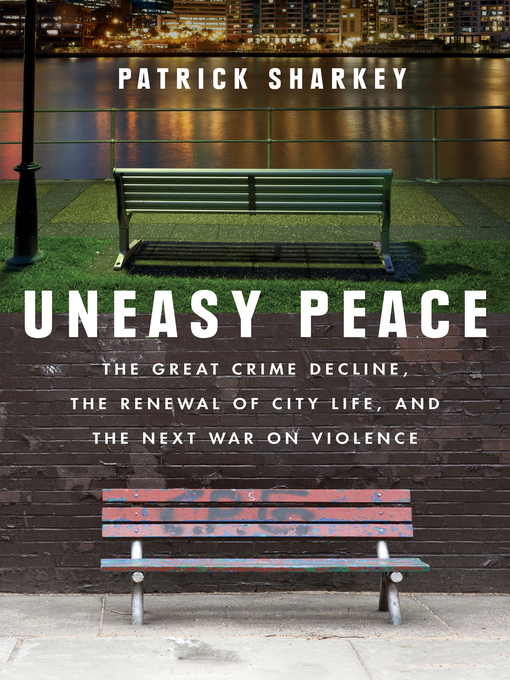"Admirably connects two stories about the criminal legal system that are usually told separately. One is that the country that Americans live in is safer than it has been for a long time. The other story is that for some citizens, especially African-American men, the country that they live in is not free." —Paul Butler, New York Times Book Review
From the late '90s to the mid-2010s, American cities experienced an astonishing drop in violent crime, dramatically changing urban life. In many cases, places once characterized by decay and abandonment are now thriving, the fear of death by gunshot wound replaced by concern about skyrocketing rents.
In Uneasy Peace, Patrick Sharkey, "the leading young scholar of urban crime and concentrated poverty" (Richard Florida, author of The Rise of the Creative Class and The New Urban Crisis) reveals the striking effects: improved school test scores, because children are better able to learn when not traumatized by nearby violence; better chances that poor children will rise into the middle class; and a marked increase in the life expectancy of African American men.
Some of the forces that brought about safer streets—such as the intensive efforts made by local organizations to confront violence in their own communities—have been positive, Sharkey explains. But the drop in violent crime has also come at the high cost of aggressive policing and mass incarceration. From Harlem to South Los Angeles, Sharkey draws on original data and textured accounts of neighborhoods across the country to document the most successful proven strategies for combating violent crime and to lay out innovative and necessary approaches to the problem of violence. At a time when crime is rising again, the issue of police brutality has taken center stage, and powerful political forces seek to disinvest in cities, the insights in this book are indispensable.


